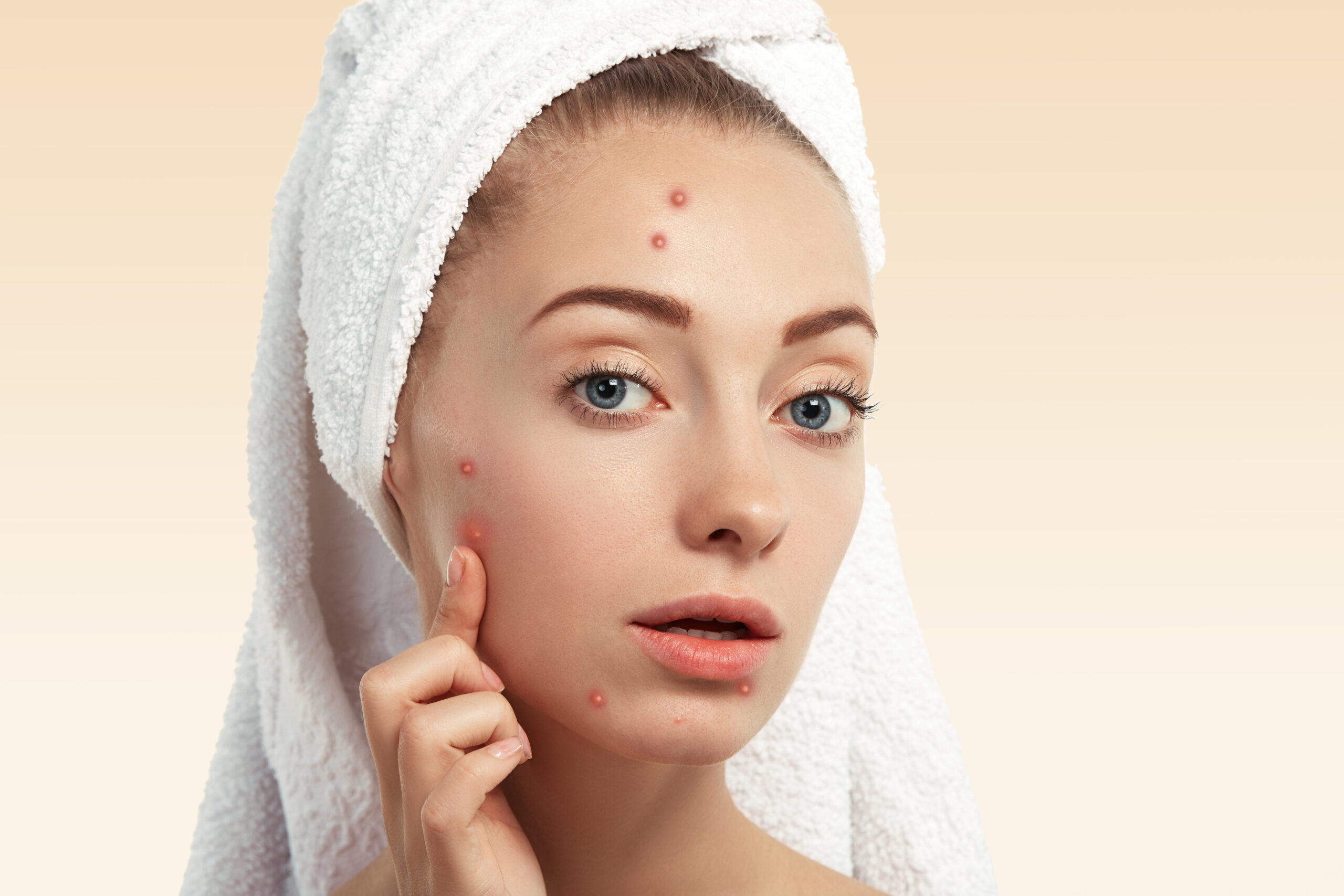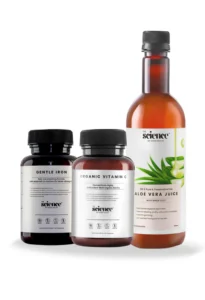If you are searching for a clear and simple answer to what causes acne, it comes down to four main factors: clogged pores, excess oil production, bacteria, and inflammation. These elements work together to trigger breakouts that range from mild blackheads to severe cystic acne.
But acne is more than just a skin condition it affects confidence, self-image, and mental health. Millions of people, from teenagers to adults, deal with persistent breakouts. By learning what causes acne and the underlying triggers such as hormones, diet, lifestyle, and genetics, you can begin to take charge of your skin health. In this article, we’ll break down the science, explain the most common causes, and explore both medical and holistic strategies for achieving clearer, healthier skin.
Understanding Acne: The Basics
Acne is a chronic skin disorder that develops when the tiny openings in your skin, called pores, become blocked. Each pore connects to an oil gland that produces sebum, the skin’s natural oil. When dead skin cells mix with excess sebum, pores clog, creating the perfect environment for bacteria to grow.
Many people believe acne is only a teenage problem, but adults also struggle with breakouts. Adult acne often appears around the jawline and chin and can be influenced by stress, hormonal fluctuations, and lifestyle factors.
Different forms of acne include:
- Blackheads and whiteheads (non-inflammatory clogged pores)
- Papules and pustules (inflamed red bumps, sometimes filled with pus)
- Nodules and cysts (deep, painful lumps that often leave scars)
Understanding these types is important because the severity of acne can vary, and treatments differ depending on whether your acne is mild, moderate, or severe. When asking what causes acne, it’s important to recognize that different forms may be influenced by different triggers.
The Science Behind Acne Development
The scientific explanation of what causes acne revolves around four key steps:
- Clogged Pores: Hair follicles get blocked by oil and dead skin cells.
- Excess Oil Production: Hormones, particularly androgens, increase oil production, creating a sticky environment inside the pore.
- Bacterial Growth: The skin naturally carries a bacterium called Cutibacterium acnes. When pores clog, this bacterium multiplies, causing irritation.
- Inflammation: The body’s immune response to bacteria leads to redness, swelling, and painful pimples.
These four processes explain why acne is not simply about hygiene. You can wash your face regularly and still experience breakouts. The deeper answer to what causes acne lies in internal factors like hormones and lifestyle choices combined with these biological mechanisms.
Major Causes of Acne
Now that we understand the science, let’s explore the most common triggers behind acne.
Hormonal Changes
One of the most common explanations for what causes acne is hormone fluctuation. During puberty, androgens rise, causing oil glands to enlarge and produce more sebum. In women, acne often flares during the menstrual cycle, pregnancy, or due to conditions such as polycystic ovary syndrome (PCOS). Hormonal acne usually appears along the jawline, chin, and lower face.
Diet and Lifestyle Factors
Another important part of what causes acne is diet and lifestyle. Research suggests that certain foods may worsen acne by influencing blood sugar and hormone levels.
- High-glycemic foods like white bread, pastries, and soda spike insulin, which increases oil production.
- Dairy products, especially skim milk and whey protein, have been linked to hormonal imbalance in some people.
- Stress raises cortisol levels, which can lead to inflammation and worsening breakouts.
- Poor sleep disrupts the skin’s natural repair cycle, making acne harder to heal.
Environmental and External Triggers
The environment also plays a role in what causes acne. Common external triggers include:
- Hot, humid weather that leads to excessive sweating and clogged pores.
- Pollution, which increases free radical damage and inflammation.
- Friction from helmets, masks, or tight clothing that irritates the skin.
- Heavy, oily skincare or hair products that block pores.
Genetics and Skin Type
For some, the answer to what causes acne is genetic. If your parents had acne, your chances of experiencing it are higher. Oily skin types tend to break out more easily because oil mixes with dead skin cells to block pores. Even people with dry or combination skin can experience acne due to internal imbalances or external triggers.
Types of Acne and What They Indicate
When exploring what causes acne, it helps to know the different forms it takes:
- Blackheads: Open clogged pores that appear dark.
- Whiteheads: Closed clogged pores that look like small bumps.
- Papules: Small red, inflamed bumps without pus.
- Pustules: Similar to papules but filled with pus.
- Nodules: Large, painful lumps deep under the skin.
- Cysts: Severe, pus-filled lesions that often cause scarring.
Each type reveals something about what causes acne in that individual, whether it’s mild surface clogging or deep hormonal and inflammatory issues.
Emotional and Mental Health Impact
Acne does not only affect the skin; it affects mental health too. Studies show that people with acne are more likely to experience low self-esteem, anxiety, and even depression. Adults, especially women, often feel frustrated when acne persists beyond their teenage years.
By understanding what causes acne, individuals can better manage their condition and avoid the negative emotional cycle that breakouts often bring. A holistic approach that addresses both skin and emotional well-being is crucial.
Prevention and Management
Preventing acne requires a combination of daily skincare, medical support, and lifestyle changes.
Daily Habits
- Wash your face twice a day with a gentle cleanser.
- Choose oil-free, non-comedogenic skincare and makeup.
- Use sunscreen daily to prevent irritation and scarring.
- Keep hands away from your face and avoid picking pimples.
Medical and Dermatological Solutions
- Over-the-counter treatments include salicylic acid, benzoyl peroxide, and adapalene.
- Prescription options include topical or oral antibiotics, birth control pills, and isotretinoin for severe cases.
- Professional therapies like chemical peels, light therapy, and steroid injections may also help.
Holistic and Wellness-Oriented Approaches
- A balanced diet with anti-inflammatory foods such as leafy greens, fish, and berries can support skin health.
- Stress management techniques like meditation, yoga, and deep breathing reduce cortisol levels.
- Supporting gut health through probiotics and fiber-rich foods can help reduce inflammation that may contribute to acne.
These combined approaches target both the internal and external factors of what causes acne.
Natural Support for Skin
For additional support, the Glowing Skin Bundle provides a combination of science-backed supplements designed to improve hydration, balance, and clarity. This can be a valuable addition to lifestyle and skincare changes for clearer skin.
Final Thoughts: Acne is Manageable
Acne is one of the most common skin conditions in the world, but it is also highly treatable. By understanding what causes acne, you gain the knowledge to address your unique triggers and make informed decisions about treatment. Whether you choose medical solutions, natural remedies, or a combination of both, remember that acne does not define you, it is simply a condition that can be managed with the right approach.
Explore Smriti Kochar
At Smriti Kochar’s Ultra-Wellness Program, the focus is not just on treating symptoms but addressing the root causes of skin and health imbalances naturally. If acne, hormonal issues, or gut health struggles are affecting your life, you have the power to take control of your healing journey.
Start Your Healing Journey Now and discover a healthier version of yourself through proven natural interventions.
Frequently Asked Questions
Q1. What causes acne in most teenagers?
Ans: Hormonal changes during puberty are the most common trigger, as they increase oil production and pore clogging.
Q2. Can acne be cured completely?
Ans: Acne can often be managed and controlled, but some people may experience flare-ups at different stages of life depending on their triggers.
Q3. Does poor hygiene cause acne?
Ans: No. Acne is not caused by dirty skin but by clogged pores, excess oil, bacteria, and inflammation.
Q4. Does stress really cause acne?
Ans: Yes. Stress increases cortisol, a hormone that can worsen inflammation and oil production.
Q5. Can diet affect acne?
Ans: Yes. High-sugar foods, dairy, and processed meals can contribute to acne in some individuals.
Q6. Why do adults get acne?
Ans: Hormonal fluctuations, stress, poor sleep, and lifestyle habits are common reasons adults continue to struggle with acne.
Q7. Can acne leave scars?
Ans: Yes. Severe or untreated acne can lead to long-lasting scars, which may require dermatological treatments.
Q8. Is acne hereditary?
Ans: Yes. Genetics play a role in what causes acne, making some people more prone than others.




